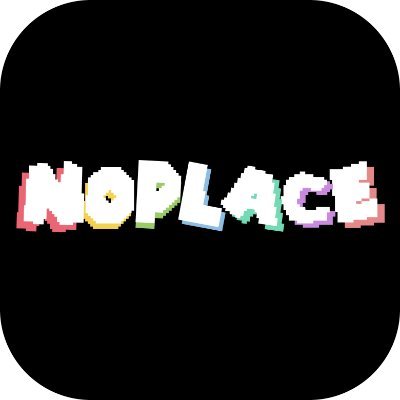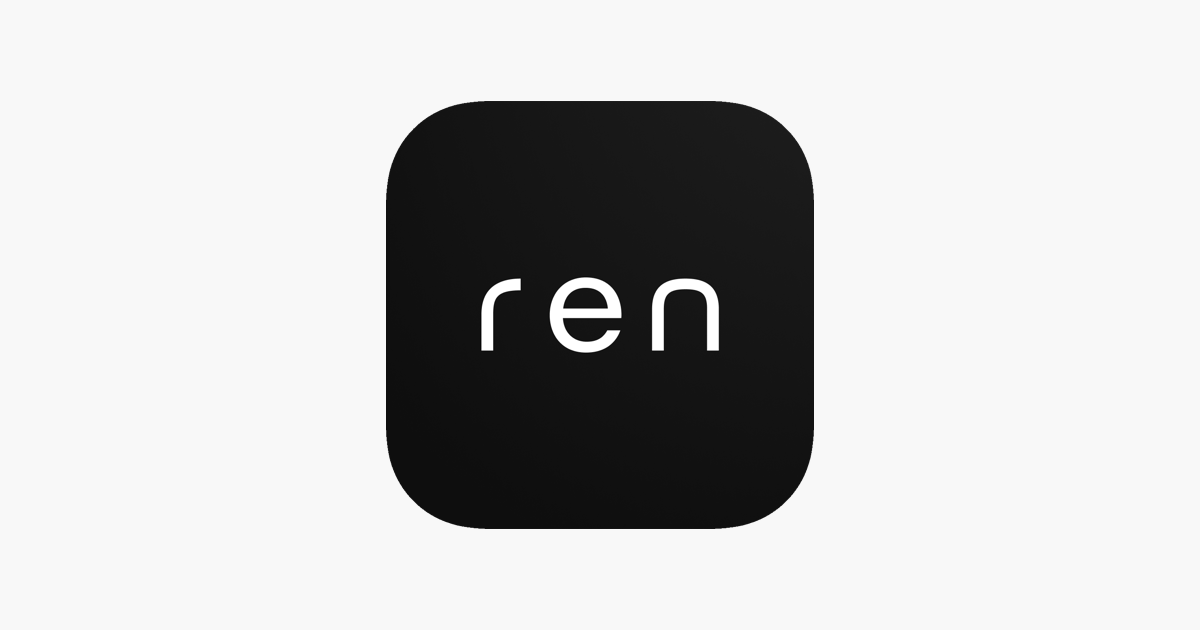Social media is in flux. Here are a list of new platforms that are vying to become the next Instagram or Twitter.

Concerns over social media’s addictive nature and lack of genuine connection is causing people to turn away from screens or look for alternate ways to connect.
But total disconnection from a digital world is not easy. While people may harbour aspirations about returning to in person community, digital is still the main way people develop connections.
That means that, despite the seeming power of social media platforms, its landscape is still in a state of flux and there is always the possibility of a “next big thing” gaining traction.
These are the social media startups that are worth keeping an eye on as contenders.
Romance

Feeld
Founded: 2014
Based: London, UK
Funding to date: $550.6k
Founded in 2014, the buzz around this London based dating app has only been growing. Billing itself as “the dating app for open minded individuals”, the application sets itself apart from others like Bumble or Hinge by focusing on an openness to accommodate those looking for romantic connections of all kinds, whether that be ethical non-monogamy, polyamory, casual sex, kink and swinging.
Feeld has been growing in popularity over the past year, with users preferring the more honest and upfront communication style. Polyamory and non -monogamy are also movements particularly popular with Generation Z, so it’s easy to see why it’s having a moment.
Feeld has raised $550.6k to date, with its last announced raise back in 2015. With its recent boom in popularity, we think it’s definitely a startup to keep a close eye on.

Breeze
Founded: 2020
Based: Berlin, Germany
Funding to date: €1.6m
Trying to combat the swipe fatigue that has become a common complaint about app-based dating, Breeze has developed its own unique selling point. Every day at 7pm, the app sends you a handful of new profiles to peruse. If you match with any of them, you can pay a small cost of €9 (or local currency equivalent), and the app will arrange the first date for you at a safe location – no online chatting involved. The price also includes one drink.
The modern dating world needs an overhaul and Breeze’s push towards real world connection is an attractive one. It also means you don’t have to spend hours thinking up witty replies to someone you might not even ever meet up with in reality.
Breeze has already gathered €1.6m in funding since it was founded in 2020. As the real world movement gathers momentum, this app is one to keep tabs on.
Innovation

noplace
Founded: 2023
Based: San Francisco, US
Funding to date: Undisclosed
Billing themselves as Generation Z’s answer to Myspace, noplace sells itself as a fun, uncomplicated, fully customisable way to update and keep in touch with your friends. Launching in 2023, the app rose to the top of the US app store in the summer of this year, bursting on to the social media scene with a retro vibe and colourful interface. It shuns the usage of algorithms and advertising, instead harking back to the early days of the internet when user experience was key.
But can it keep the momentum up? Has the internet moved on? The startup hasn’t disclosed any funding as of yet, but it’s ability to go viral has got people downloading and registering – a large part of the battle when it comes to new forms of social media. The real issue is to have a life beyond the initial hype. It’s worth keeping an eye on.

Gowalla
Founded: 2020
Based: Saint Helena, US
Funding to date: $4m
Something of an anomaly in the world of social media, Gowalla originally launched in 2007, closed in 2012 and reopened again in March 2023. It’s a location based networking app that allows people to connect to people near to them physically. The idea for its rebirth came during the pandemic, when locality and connection became so much more important to people.
The re-startup raised $4m in seed funding in 2021 ahead of the relaunch, and counts Alphabet and augmented reality builders Niantic as backers. Clearly there are key players who are excited to see it make a return.

Claim
Founded: 2021
Based: Boston, US
Funding to date: $18m
Shopping used to be a social activity – something to do with friends and family. Now it’s a solitary activity done alone in front of a laptop screen. Harvard University spinout Claim is trying to change that. The app encourages you to connect with your friends to earn cashback, rewards and even redeem offers together. It’s an attractive concept for both seller and purchaser, with endorsements from friends being the most potent purchase driver. It also lets consumers band together and harness their purchase power, letting the consumer engage openly and intentionally with different outlets.
The app has so far raised $18m in funding since its inception in 2021. The most recent funding round in October 2024 included big hitters such as Sequoia and VMG Partners. This social media startup has the benefit of having a clear route to profit making, perhaps making it a more interesting prospect than something that relies on changing trends.

shelf
Founded: 2020
Based: New York, US
Funding to date: $7m
Sharing online has changed, with people less likely to share a selfie and more likely to share what book they’re reading, what TV show they’re watching and what film they saw. Shelf, a platform developed by Koodos Labs lets users create a “shopfront”, connecting with platforms like Spotify, Goodreads and Netflix, and with intentions to include gaming platforms like Steam. The idea is that you can share your “shelf” on any platform or with anyone – a bit like letting people browse a bookshelf in your house.
The New York based startup has raised $7m (according to TechCrunch), with investors including Accel, Rough Draft Ventures and co-founder of Pinterest Evan Sharp. As people look to connecting with people in a more honest and nuanced way, letting people have a look at your “shelf” could possibly end up being as ubiquitous as sharing your Instagram handle.
Professional life

Ren
Founded: 2019
Based: Newark, US
Funding to date: $8.8m
As in-person work events become more scarce, and business moves further online, it makes sense that ways to network online will inevitably extend beyond adding each other on LinkedIn.
Ren Systems thinks it has the answer, with its deal making “relationship intelligence” technology that allows sales and business development professionals to connect and meet with each other. The company recently raised $3.5m in seed funding, with real estate company JLL and software company Zoominfo contributing to the round.
The technology automates research, meeting prep, and outreach by understanding the users’ business objectives and syncing with their CRM, Outlook, calendar, and iOS contacts. It also gives alerts about key contacts and companies, and recommends actions to help uncover and win deals.
10 social media startups we highlighted previously
——–
In 2023 we brought you 10 social media startups to watch out for. Check them out below, with added updates.
Betterhalf
- Founded: 2016
- Based: India
- Funding to date: $12m
Pressure to find a life partner can be felt all around and no group understands this better than the Indian community. Netflix’s Indian Matchmaking and the romantic plights of Seema Taparia’s clients showed the pestering that Indians experience when it comes to marriage.
But India-based startup Betterhalf now works as a matchmaker for Indians without the hassle and involvement of relatives and employees.
Betterhalf is the country’s first marriage app for urban Indians that is aimed at allowing them to take charge of their paths to marriage. The company has created an AI-based matchmaking system whilst also offering wedding services such as booking venues and decorator contacts.
The startup targets high-income individuals in tier I cities. It uses relationship data of couples and leverages AI to provide a combination of personalised experiences, allowing for a targeted subset of matches and a quick turnaround time to find partners. In addition, the app offers human matchmakers who can provide a more personalised search.
The startup was founded by chief executive Pawan Gupta and chief technology officer Rahul Namdev in 2016. Gupta has worked for several social media companies including Snapchat and Layer.
Betterhalf has raised $12m. Its most recent round was in March 2023 when it raised $8.5m in a series A round. Investors included venture firms such as FinSight Ventures and Nurture Ventures. Angel investors Punit Soni and Ravish Naresh also participated.
Jigsaw
- Founded: 2016
- Based: UK
- Funding to date: $4m
Jigsaw is a UK-based personality-driven dating app. It operates by hiding the face of the user behind a jigsaw puzzle and slowly reveals the face piece by piece through message exchanges and profile interactions.
The company’s goal is to reduce the number of shallow exchanges that occur in typical online dating platforms and allow users to find long-lasting relationships based on quality conversation and personality.
Jigsaw was founded by chief executive Alex Durrant and chief product officer Max Adamski in 2016. Durrant spent four years as an accountant. Adamaski acquired a Bachelor of Fine Arts at the University of Leeds in 2016.
Since its launch, Jigsaw has raised $4m. Its investors are undisclosed. Its seed round in 2021 allowed the startup to acquire a patent to be fully operational in the US. It is one of the highest rated dating apps in the US App Store.
Playdate
- Founded: 2021
- Based: UK
- Funding to date: $306,000
Certain demographics experience more rejection in online dating than others.
One of these groups is single parents. Global Dating Insights found that 32% of single dads between the ages of 30 and 38 were rejected for a date because they have kids. Younger single parents have higher rejection percentages.
UK-based startup PlayDate hopes to address this discrimination. The app was created solely for single parents and offers a safe space for parents to chat, connect and date like-minded parents.
The app works by finding matches in the user’s local area whilst following a criteria the user has given. The startup has partnered with UK-based babysitting app Bubble to help dating parents arrange childcare. It offers an invisibility feature to hide from ex-partners.
It was founded by single mum Nevine Coutry in 2021. She was inspired by her own frustrations dating as a single parent. She also serves as the startup’s chief executive. Before founding the company she spent 11 years as the managing director of Vcom Marketing and was a senior account director for two years at Innesco.
“The UK has three million single parents and there are 320 million single parents globally,” Coutry tells Global Corporate Venturing. “Our mission is to make dating accessible and hassle-free for single parents looking for meaningful relationships and to expand their families. We currently have over 50,000 users and plan to grow massively in the coming years.”
In February Playdate raised $305,070 in its first external funding round from venture capital firm Ankh Impact Ventures. Several undisclosed angel investors also participated.
Thursday
- Founded: 2018
- Based: UK
- Funding to date: $3.62m
Researchers found individuals spend on average 55 minutes a day on dating apps, swiping endlessly through profile after profile – it’s no wonder people feel that they will never find love online.
UK-based dating app Thursday has bucked the trend to tackle online dating fatigue and help users build confidence in their ability to find love online. The startup, which labels itself as “the offline dating app”, is only live once a week on a Thursday, meaning users can match and chat with love interests in a specific time frame and meet on the same day. Similar to other dating apps, Thursday relies on like-based profile searches to attract matches. Users have to wait until Thursday to see if any connections have occurred.
It was founded by chief executive George Rawlings and investor Matthew McNeil Love in 2018. The two initially launched the app Honeypot Dating, which allowed users to check into venues and see who was single and ready to mingle. It was later developed into Thursday. Rawlings has launched other companies such as Agent Vox, an IT-based estate agents communication platform which was merged with BombBomb.com in 2018.
Thursday raised $3.5m in a seed round in 2021. Investors included Jägermeister’s corporate venture arm, Best Nights VC, and transport app CityMapper. Venture capital firms Ascension Ventures and Connect Ventures also provided financing.
Sunroom
- Founded: 2020
- Based: US
- Funding to date: $3.6m
Women sometimes have a tough time on social media. Whether it be slut shaming, censorship or online harassment, finding a safe space to feel sexually empowered without consequences or retaliation is difficult. And, although sites exist such as Onlyfans, a platform used by sex workers to produce pornography, there are continually issues of stalkers, piracy and objectification, which have caused women to turn away from this app.
Sunroom is a US-based startup that combines OnlyFans with social media feeds offered by platforms like Facebook to empower women and non-binary creators who are tired of seeing their content censored or targeted.
The platform helps users to create content and maximise revenue while aiming to reduce the stigma and restrictions that women and non-binary individuals face.
Founded by Hinge and Bumble alums Lucy Mort and Michelle Battersby in 2020, the women were inspired to launch Sunroom after hearing many women and non-binary creators being taken off Instagram and TikTok for their apparently explicit content. Mort spent four years at Hinge as a director of design and a product designer. Battersby spent three years at Bumble as director of APAC marketing.
In 2022 Sunroom raised $3.6m in a seed funding round. Investors included venture capital firm Blackbird Ventures and angel investors Li Jin and Michelle Kennedy. Others included Graph Ventures, Backend Capital and I2BF Global Ventures.
Lapse
- Founded: 2017
- Based: UK
- Funding to date: $12.3m
Trying to recapture the magic of connecting with others through photo sharing, Lapse’s idea is the antidote to the overly polished world of Instagram. With the resurgence of the film photograph, Lapse seeks to recreate the essence of a disposable camera in a digital world.
The app, which is currently invite-only, operates like a point and shoot, with photos taking time to “develop” rather than allowing instant sharing. Lapse doesn’t feature any filters or editing tools and users aren’t able to import existing photos. The emphasis on simplicity is intended to reconnect users with the primary purpose of sharing moments with friends.
Lapse offers journaling features, profile customisation and integration with Deezer for music. Currently available only on iPhones, Lapse is free to use after receiving an invitation and does not include ads or data selling. To date, it has raised $12.3m in seed funding from investors that include Google Ventures.
Mastodon
- Founded: 2016
- Based: US
- Funding to date: $0m
Mastodon, a non-profit, decentralised, open-source social media platform founded by Eugen Rochko, has been seen by many as a natural successor to Twitter.
Offering a federated network, Mastodon’s servers operate independently but can communicate – in a similar way to email. Users pick a server, like choosing an email service, which impacts their profile address. They can communicate across servers, which in some instances are managed by individuals, groups, or organisations, each with distinct rules and guidelines. It allows diverse content control, suiting various interests and professions, similar to communities. Its unique features include “toots” (similar to tweets), “boosts” (akin to retweets), and a diverse server joining experience.
Mastodon’s decentralised, open-source nature allows users to install the platform on their servers. It emphasises community-based rules and moderation, creating more direct conversations, but it’s notably smaller than Twitter. While less intuitive for mainstream use, its customisable nature and potential for controlled experiences and flexible privacy controls could mean it could rescue users from the poisonous effect of social media trolls.
Puck
- Founded: 2021
- Based: US
- Funding to date: $17m
Fake news. The buzzword for the decade. Social media platforms have become known for spreading misinformation, with Massachusetts Institute of Technology reporting that falsehoods online are 70% more likely to be retweeted on Twitter than facts.
The lack of effective monitoring of misinformation on Twitter and Facebook has reduced social media users’ trust in the platforms.
Puck is a US-based news subscription platform which aims to provide the latest inside scoops in Hollywood, Wall Street, Washington and Silicon Valley. The company is owned by journalists and aims to provide users with access to accurate content through articles, podcasts and events.
It was founded by Joe Purzycki, Jon Kelly, Liz Gough, Julia Ioffe and Max Tcheyan in 2021. The team created Puck to try to build trust between news content distributors and their audiences. Purzycki acts as Puck’s chief executive. He spent four years at Vox Media as the vice president of advertising and director of advertising and partnership.
The startup has raised $17m. It raised $10m in a series B round in 2023. Investors include media and advertising services company Forty North Media, as well as venture firms TPG and Standard Investments.
Polywork
- Founded: 2020
- Based: US
- Funding to date: $44.5m
Social media is not just a way to absorb content or maintain relationships with loved ones. It has become a place to help users find and build their career.
Everyone knows and uses LinkedIn in the modern age. The platform has attracted more than 930 million users across 200 countries. But LinkedIn’s set-up has been accused of projecting the same old-fashioned networking methods of the past.
Polywork, a US-based company, says its platform brings about a new, more relatable way for professionals to network and express their employment capabilities. The startup’s profile builder provides a more human outlook on a individual, allowing users to tell the world more about them. The “highlights” section allows users to showcase their successful projects rather than focusing on job titles and connections.
Polywork was launched by Peter Johnston in 2020. Johnston founded payments and freelancing company Kalo in 2014 and spent over a year as a designer at Google.
In 2022 the startup raised $28m in a series B round, which saw a slew of angel investors participating, including GitHub CEO Nat Freidman. Other investors include venture firms Andreessen Horowitz, Caffeinated Capital and Techstars.
Locals.org
- Founded: 2020
- Based: UK
- Funding to date: $11m
Similar to the likes of the more established Patreon and rising star Substack, Locals.org is a social media platform that enables creators, such as influencers, artists, journalists or any other content creator, to build their own subscription-based communities. Creators can interact directly with their audience, offer exclusive content, have discussions and offer a more intimate space for interaction.
Locals.org aims for creators to foster deeper connections with their supporters in a time when people are becoming more disillusioned with the influencer concept. It also aims to allow creators to move away from ad-generated revenue while supplying an income stream through direct subscribers. This shift incentivises creators to produce high-quality content tailored to the preferences of their followers rather than to advertisers.
Locals.org aims for like-minded entrepreneurs to connect with each other – online and in person – to talk business, grow their network or socialise. With the likes of Sam Altman, founder of Open AI, and Nik Storonsky, the founder of Revolut, using the platform to host meetups and events, it has the stamp of approval from some discerning and tech-forward individuals.
Community is key for a new social media, and creating these small but inclusive spaces for like-minded individuals fosters a feeling of authenticity and connection that people are hungry for.








